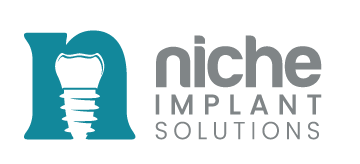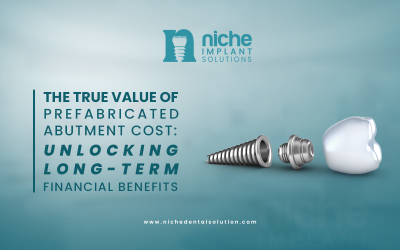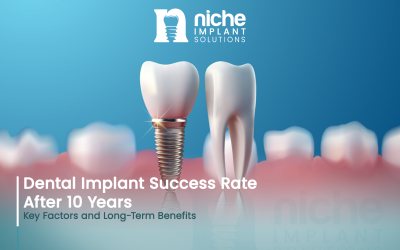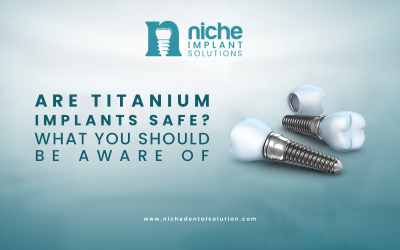Dental implants are a great solution for missing teeth, but knowing the recovery timeline is key to a smooth healing process. This guide covers what to expect at each stage, helping you navigate your recovery with confidence and ease.
Dental Implant Recovery Timeline: What to Expect
Dental implants offer a durable and natural-looking solution for missing teeth. However, the recovery process can vary depending on individual health, the complexity of the procedure, and the type of implant used. Understanding the dental implant recovery timeline can help you prepare for the process and manage your expectations.
1. Immediate Post-Procedure (Day 1-3)
What to Expect:
- Swelling and Discomfort: It’s common to experience swelling and discomfort around the implant site. This can be managed with prescribed pain medication and over-the-counter pain relievers.
- Bleeding: Light bleeding is normal for the first few hours. Keeping your head elevated and applying ice packs can help reduce bleeding and swelling.
Care Tips:
- Diet: Stick to soft foods and avoid hot or spicy foods. Opt for cold or room temperature foods to minimize discomfort.
- Oral Hygiene: Gently rinse your mouth with a prescribed mouthwash or saltwater solution. Avoid brushing the implant site directly.
2. Early Healing (Week 1-2)
What to Expect:
- Reduced Swelling: Swelling and bruising should start to decrease. You may still experience mild discomfort.
- Initial Healing: The gum tissue begins to heal around the implant, though it may feel tender.
Care Tips:
- Follow-Up Appointment: Attend your follow-up appointment to ensure the implant is healing properly.
- Maintain Hygiene: Continue gentle brushing and rinsing, but avoid using a toothbrush near the implant site until your dentist advises otherwise.
3. Osseointegration Phase (3-6 Months)
What to Expect:
- Bone Integration: The implant begins to fuse with the jawbone in a process called osseointegration. This period is crucial for the long-term success of the implant.
- Gradual Improvement: Most discomfort should subside, but it’s normal to have periodic soreness.
Care Tips:
- Regular Check-Ups: Keep up with scheduled check-ups to monitor the progress of osseointegration.
- Diet and Habits: Maintain a balanced diet and avoid chewing excessively hard foods. If you smoke, consider quitting, as smoking can hinder healing.
4. Final Restoration (4-6 Months)
What to Expect:
- Restoration Placement: Once osseointegration is complete, your dentist will place the final crown or prosthetic tooth on the implant.
- Adjustment Period: You may need a short adjustment period to ensure the final restoration fits comfortably and functions correctly.
Care Tips:
- Follow Instructions: Adhere to your dentist’s instructions for care and maintenance of the final restoration.
- Ongoing Hygiene: Practice excellent oral hygiene, including regular brushing, flossing, and professional cleanings to maintain the health of your implant and surrounding teeth.

5. Long-Term Maintenance
What to Expect:
- Ongoing Health: With proper care, dental implants can last many years. Regular maintenance and check-ups are essential to ensure their longevity.
- Potential Issues: Watch for signs of complications such as unusual pain, infection, or implant mobility, and contact your dentist if you experience any issues.
Care Tips:
- Regular Visits: Schedule regular dental check-ups to monitor the health of your implant and surrounding tissues.
- Oral Hygiene: Continue to follow a rigorous oral hygiene routine to prevent complications and maintain implant health.
Understanding the dental implant recovery timeline helps set realistic expectations and prepares you for each stage of healing. By adhering to care instructions and attending follow-up appointments, you can ensure a smooth recovery process and enjoy the long-term benefits of your dental implants. For personalized advice and to address any concerns, consult with your dentist throughout your recovery journey.
Factors Affecting the Dental Implant Recovery Timeline
Dental implants are a sophisticated and effective solution for replacing missing teeth. However, the recovery period following a dental implant procedure can vary widely based on several factors. Understanding these factors can help in managing expectations and achieving a successful outcome. In this article, we’ll explore the key factors influencing the dental implant recovery timeline.
1. Overall Oral Health
The state of your oral health significantly impacts the recovery process. Individuals with pre-existing oral conditions such as gum disease or tooth decay may face a longer recovery period. Maintaining good oral hygiene by brushing, flossing, and using mouthwash is crucial for a quicker recovery and to improve the dental implant recovery timeline.
2. Adherence to Post-Operative Instructions
Following the dentist’s post-operative care instructions is essential for a smooth recovery. This includes taking prescribed medications, avoiding hard foods, and keeping the mouth clean. Adhering to these guidelines can greatly affect the speed and success of the recovery process, positively impacting the dental implant recovery timeline.
3. General Health Condition
Your overall health also plays a role in the recovery period. Individuals with chronic health conditions like diabetes or heart disease may experience a longer healing time. Proper management of these conditions is vital for ensuring a faster recovery.
Also look: PEEK Dental Implants: The Future of High-Performance Tooth Replacement
4. Age
Age can influence the rate of recovery. Generally, younger individuals tend to heal faster than older adults. However, this does not mean that older patients cannot achieve excellent results; they may just need to be more vigilant about their health and recovery.
5. Implant Type and Medical Expertise
The type of implant used and the expertise of the surgeon can affect the recovery period. High-quality implants and advanced techniques can contribute to a more efficient healing process. The skill and experience of the dental professional are also crucial in ensuring a successful procedure and minimizing recovery time.
6. Lifestyle and Habits
Daily habits, such as smoking or alcohol consumption, can negatively impact the healing process. Smoking, in particular, can slow down recovery and increase the risk of complications. Avoiding these habits during the recovery period can help improve the dental implant recovery timeline.
7. Proper Nutrition
A balanced diet rich in vitamins and minerals is essential for healing. Nutrients like proteins, vitamins (such as Vitamin C and D), and minerals (such as calcium) support wound healing and overall recovery. Ensuring proper nutrition can positively affect the recovery timeline.
8. Compliance with Follow-Up Appointments
Regular follow-up visits to the dentist are important for monitoring the progress of healing. During these visits, the dentist can assess the healing process and address any issues that may arise. Staying on top of these appointments helps ensure a smoother recovery and a more predictable dental implant recovery timeline.
The dental implant recovery timeline is influenced by several factors, including oral health, adherence to post-operative care, general health, age, implant type, lifestyle habits, nutrition, and follow-up care. By maintaining good oral hygiene, following medical advice, and leading a healthy lifestyle, you can enhance the success of your dental implant procedure and improve the recovery timeline. If you have any concerns or need personalized advice, consult your dental professional for tailored guidance.

Understanding Common Symptoms and Potential Issues During the Dental Implant Recovery Timeline
Dental implant recovery timeline offer a reliable solution for replacing missing teeth, but like any medical procedure, the recovery process can come with its own set of challenges. Knowing how to distinguish between normal symptoms and signs that require medical attention can make a significant difference in your recovery experience. In this article, we’ll discuss common symptoms, potential issues, and provide tips for a faster, more effective recovery, all while keeping the dental implant recovery timeline in focus.
Common Symptoms After Dental Implant Surgery
- Swelling and Bruising: It’s normal to experience some swelling and bruising around the implant site. This usually peaks within 48 hours and starts to subside thereafter.
- Discomfort and Pain: Mild to moderate pain is common after the procedure. This can typically be managed with prescribed pain relievers or over-the-counter medications.
- Bleeding: Some bleeding is normal right after the surgery. It should gradually decrease within the first few hours.
When to Seek Medical Attention
While some discomfort is expected, certain symptoms may indicate potential problems that require professional evaluation:
- Persistent or Severe Pain: If pain intensifies or does not improve with medication, it could be a sign of an infection or other complications.
- Excessive Swelling: Swelling that continues to worsen after a few days may signal an infection or other issues.
- Signs of Infection: Symptoms like fever, excessive redness, or discharge at the implant site can indicate an infection.
- Implant Mobility: If the implant feels loose or shifts, it may suggest issues with osseointegration or placement.
Common Problems and Their Treatments
- Infection: If you suspect an infection, it’s crucial to contact your dentist promptly. Treatment may involve antibiotics and possibly cleaning the implant site.
- Implant Failure: Occasionally, an implant may fail to integrate with the bone properly. In such cases, your dentist may need to remove the implant and consider alternative treatments.
- Gum Recession: Receding gums around the implant can occur and may require additional procedures to restore the gum tissue.
Tips for a Speedy and Effective Recovery
- Follow Post-Operative Instructions: Adhere strictly to the dentist’s guidelines for care after the procedure. This includes taking prescribed medications and avoiding certain foods.
- Use Cold Compresses: Applying a cold compress to the face can help reduce swelling and ease discomfort during the first 24-48 hours.
- Maintain Good Oral Hygiene: Keep the mouth clean to prevent infection. Use a soft-bristled toothbrush and follow your dentist’s recommendations for cleaning the implant area.
- Avoid Smoking and Alcohol: Both smoking and alcohol can hinder the healing process. It’s advisable to avoid them during the recovery period.
- Stay Hydrated and Eat Well: A balanced diet rich in vitamins and minerals supports the healing process. Drink plenty of water and eat foods that promote tissue repair.
The Importance of Follow-Up Appointments
Regular follow-up visits to your dentist are critical for monitoring the progress of your recovery. These appointments allow your dentist to assess the integration of the implant, address any concerns, and ensure that the healing process is on track. Consistent follow-up helps in identifying any issues early and contributes to a smoother dental implant recovery timeline.
Understanding common symptoms and potential issues in dental implant recovery is crucial for success. By recognizing normal post-surgical effects versus complications and following recovery best practices, you can improve the overall dental implant recovery timeline. Always consult your dental professional for guidance and to ensure a swift, effective recovery.
Conclusion
Understanding the common symptoms and potential problems associated with dental implant recovery is essential for ensuring a successful outcome. By distinguishing between normal post-surgical effects and signs of complications, and by following best practices for recovery, you can enhance the overall dental implant recovery timeline. Always seek guidance from Niche dental solution, the provider of high-quality dental implant products, to address any concerns and support a speedy, effective recovery.





0 Comments